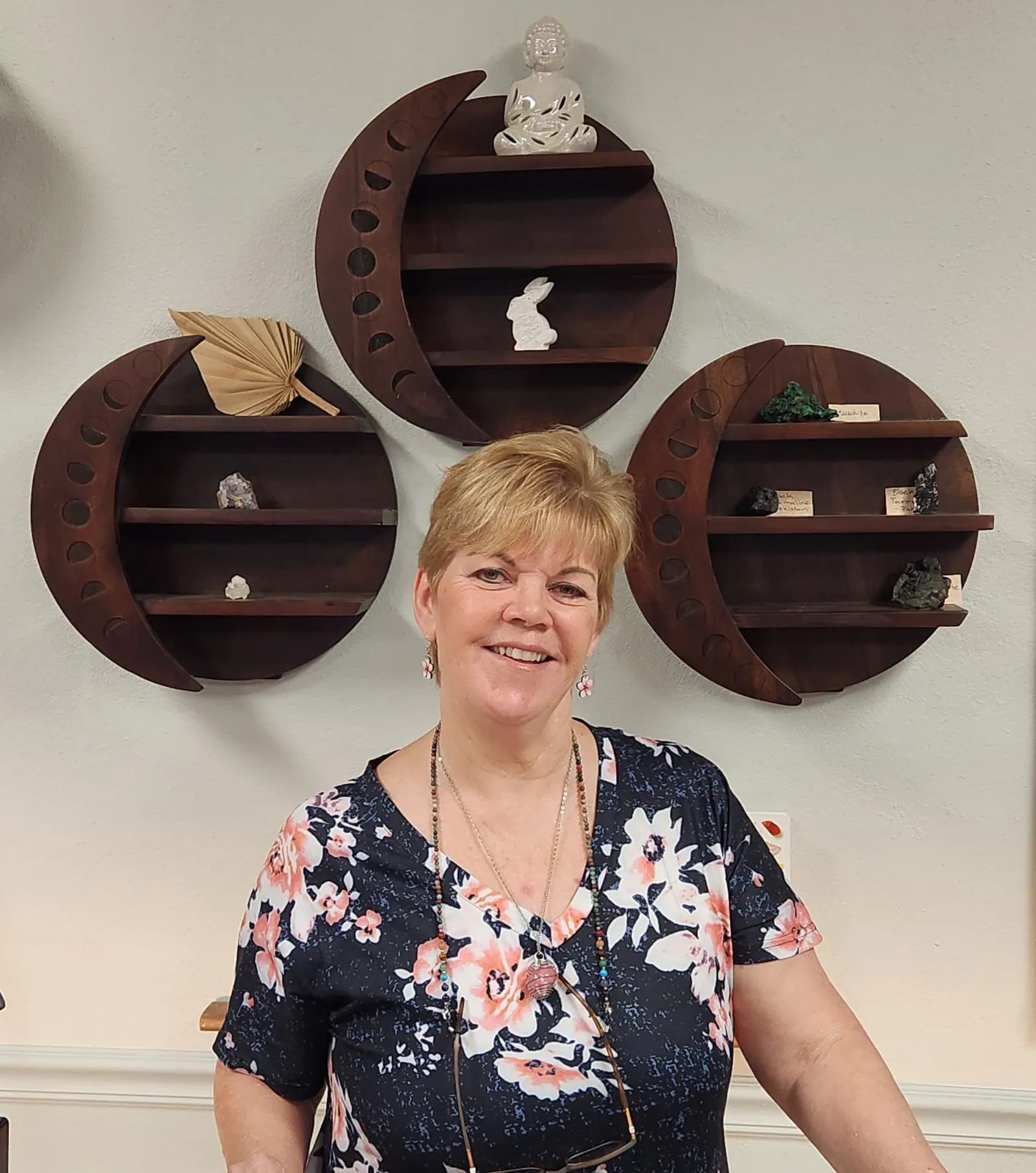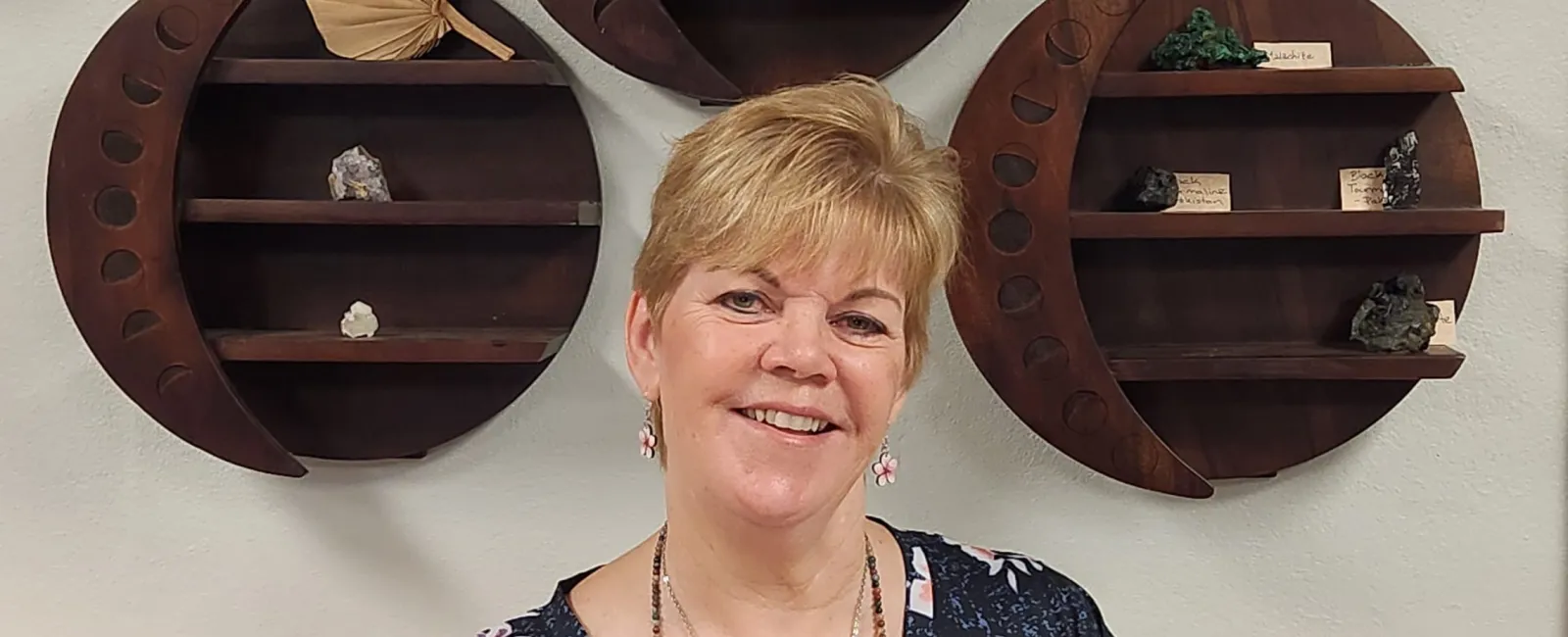
Volunteer Judy Braham was an end-of-life doula before she knew there was such a thing.
Judy was present for the deaths of her mother and ex-husband and found that she had a keen interest in helping people prepare for the best end-of-life experience possible. That fits right in with Empath Health's Full Life Care mission.
She remembers acting instinctively to ask a hospice nurse to sing just moments before her mother's death. At the suggestion of Judy's daughter, the nurse sang a lovely rendition of "Amazing Grace," her mother's favorite song.
"When I would tell people about it, I would say what an honor it was to be there for someone in their last moments. I would get a lot of strange looks," Judy said.
It wasn't until the pandemic, when Judy read an online article about Riley Keough, Elvis Presley's granddaughter, training to become a death doula that she realized there are others who share her passion. Judy signed up for end-of-life doula training soon after.
Death, like birth, is part of our human experience. End-of-life doulas help people embrace the experience as a meaningful part of the life journey.
Tidewell Hospice, a member of Empath Health, offers specially trained end-of-life doulas to help patients think through and prepare for their death, ensuring the person voices desires and preferences. They also help facilitate life legacies, special projects to shape how the dying person will be remembered.
The doula often is part of a patient's vigil, remaining bedside during the final days and hours, to provide comfort and support for the patient and family. Using tools like guided imagery, doulas can help patients return to a happy memory, a bit of distraction that provides peace.
Judy moved to south Sarasota County from the Detroit area in 2007. She works part time at her friend's metaphysical gift shoppe - The Ray, The Stars, & the Moon - in Nokomis. Judy became a Tidewell volunteer after completing doula training through another organization.
She says some hospice patients aren't even aware, or don't want to acknowledge, they are dying. So when she first meets a patient, Judy asks, "Where do you see yourself in three months?" to gauge their mindset. If they answer, "I won't be here," she knows they can begin to discuss wishes for their final moments. What music would they like to be playing? Who should be at the bedside? Are there religious preferences to be considered?
If the patient says they plan to recover in three months, Judy supports them however she can.
"When I first started the program," Judy said, "I thought one of the things we were going to do is walk into people's homes or rooms and be like, 'You're dying. We have a lot of things to accomplish.' One of the first things they teach you is you don't go in with an agenda. It's their death. We try to meet them where they are."
Judy once worked with a Tidewell patient who didn't want to discuss much about her end-of-life experience. But the patient confided to Judy that she had been seeing other people in the room, people her best-friend caregiver and certified nursing assistant said were not really there. Judy encouraged the patient to talk about the people she was seeing and helped her gain comfort from the experience.
"We're there to help put a voice to the person's final wishes and to help the family embrace it. People feel out of control when they are dying," Judy said.
Volunteers like Judy are vital to non-profit healthcare organizations like Empath Health. During Fiscal Year 2022, Empath's 2,000 volunteers provided almost 200,000 hours of service that represented more than $5 million of value to the company. In 2019, the nation's hospice volunteers generated more than $469 million in annual savings, the National Hospice and Palliative Care Organization (NHPCO) reported.
Unfortunately, Empath Health has suffered a reduction of volunteers that began during the COVID-19 pandemic. According to Vice President of Volunteer Engagement Stacy Groff, volunteer numbers are down 30 to 50 percent from pre-pandemic levels, depending on the service line. Few of the volunteers who left during the pandemic are returning.
Empath Health is happy to work with prospective volunteers to find a role that best fits them.
Common hospice-related volunteer tasks include running errands, delivering meals, providing companionship or sitting vigil with a patient at the end of life. Volunteers make phone calls to patients and families, and veteran volunteers perform special pinning ceremonies to honor fellow military brothers and sisters.
But there are many other opportunities, including working at one of Empath's hospice resale shops, helping out with administrative tasks at an office or planning a charitable event, or providing pet therapy, aromatherapy, music therapy or massage therapy. Volunteers also contribute to Empath's grief and bereavement services, including the Blue Butterfly family grief program. There are also opportunities to help HIV/STI division's food pantries or assisting PACE or Adult Day Center participants at one of our Day Centers. Teens are welcome to volunteer while satisfying school service requirements and are utilized in many ways.
For more information about volunteering in Pinellas and Hillsborough counties, call (727) 523-3440. In Sarasota, Manatee, Charlotte and DeSoto counties, call (941) 441-2061. Information and an application are available at EmpathVolunteers.org.
